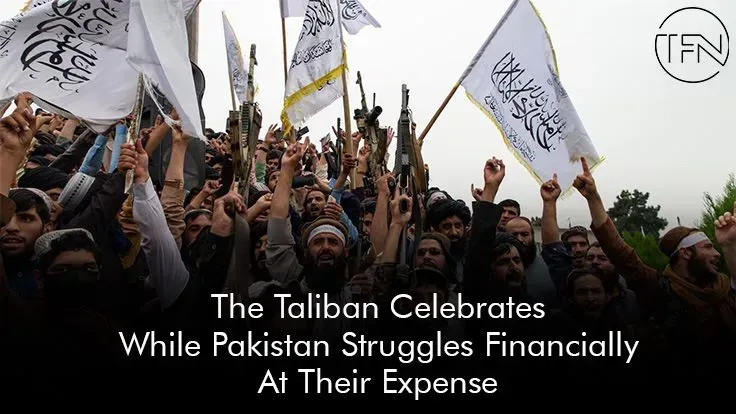Islamabad is on the edge of bankruptcy and is now suffering the consequences of terrible policies. Many individuals have reportedly even perished in stampedes as they flocked to marketplaces to get discounted sacks of flour that were in short supply.
Pakistan is acting out the part by returning with the same begging bowl to China, the World Bank, and the International Monetary Fund with a fresh selling pitch this time.
And those attempting to take advantage of the circumstance don't need to look too far.
So, do Pakistan's lenders have the capacity to intervene once again to rescue them? The most crucial question is: Who profits from Pakistan's suffering?
As of January 2023, Pakistan would be drowning in debt; its total debt will be close to $270 billion, or about 79% of its GDP. The government's internal debt rose by 18.7% last year to 31 point 4 trillion Pakistani rupees, according to the state bank of Pakistan.
As of September 2022, its foreign debt was 17.9 trillion Pakistani rupees, a 30.2% increase from the previous year.
The situation is such that Pakistan has accepted enormous and imprudent loans from nations like China and important organizations like the World Bank and IMF in the name of economic rehabilitation. More crucially, it hasn't shown any improvement to support the IMF's estimate of the amount.
Chinese aid to Pakistan is three times bigger than the IMF loan and surpasses the combined funding from the World Bank and Asian Development Bank. Around $30 billion, or 30% of Pakistan's entire foreign debt, is owed to only one country.
A large portion of it was for the China-Pakistan Economic Corridor, often known as CPEC, which neither party has found to be financially successful.
By August 2022, Pakistan would have received a $6 billion rescue package from the International Monetary Fund. From that, it collected $4.9 billion. But since an assessment of how the money is being used is still being conducted, the IMF has delayed the remaining amount.
Prime Minister Shahbaz Sharif is working hard to end the impasse right now. Islamabad has now essentially done the next best thing, which is to solicit money in the name of flood relief. Over 33 million people were allegedly impacted by a catastrophic flood wave in Pakistan last year.
Over $30 billion in damages were anticipated by the World Bank, of which $15.2 billion were economic losses and the remaining amounts were various costs as a result of flood-related disruptions.
On Monday, more than $9 billion was promised by dozens of nations and international organizations to assist Pakistan in rebuilding after the floods.
However, there was a catch. There is no free money, according to the president of the UN Development Program, and everyone who promised their contributions today will have certain expectations. Simply put, the lender is counting on receiving this money back from Pakistan, which doesn't seem likely.
Here is Pakistan's bitter truth. Even before the floods, it was in this financial mess. A debt-ridden economy is very difficult to build. Shahbaz Sharif is also feeling the pressure.
The Taliban in Afghanistan are utilizing this to their advantage. In the hope of finally being able to contain the TTP or Pakistani Taliban, Pakistan engineered the US withdrawal from Kabul in 2021.
Therefore, the primary organization that was not subject to rationing soon declined once the Taliban handed TTP carte blanche.
The TTP and Pakistani soldiers often engaged in combat, notably near the German border. The TTP now vows to step up its criticism of Islam.
Pakistan has expressed its intention to strike back, but because of its dire financial situation, it is unable to conduct any counterterrorism operations in these regions.
The US has supported Pakistan in its war against terrorism. According to US Central Command Chief General Michael E. Karela, preserving peace and security in the area still depends on Pakistan's counterterrorism efforts. However, they are just empty platitudes that won't do anything to further Pakistan's cause.
It is important to remember that the US formerly had a significant role in providing Pakistan with military assistance. The US Congress authorized $18 billion in military and economic assistance from the US between 2002 and 2011.
However, Pakistan's strategic error has left it all alone to track down the Taliban network, which it is unable to do given its financial situation. the period when the economic recovery is still unclear.

